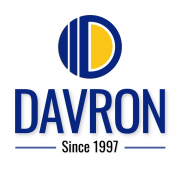My executive clients often ask me to detail the most important requirements of a modern resume. What tops your list? Where should you focus your energies when crafting this important career file? A dozen potential “must haves” come to mind, but what should always be at the forefront? There is one item. It is “value”. The most successful executive resumes demonstrate clear values.
Having created hundreds of resumes for executives, I know that this career tool leaves very little time and space to convey value to readers.
When I work with executives in the resume building process, my goal is to try to differentiate each individual’s value proposition and succinctly support it throughout the file. I ask my clients a variety of questions and brainstorms to ensure their value is recognized, properly supported, and effectively showcased.
To begin, you must know yourself
While this may sound implicit, it is often not. Many of my clients know their jobs and jobs well, but they are unaware of their personal skill sets and unique strengths. Identifying what sets it apart requires deep analysis and careful reflection.
Here are some questions I often use to prompt my clients about their personal strengths:
• What makes you different from other applicants with the same experience as you?
• What are the five characteristics that best describe you at work?
• What is the maximum return on investment an employer will get from you?
• What have you consistently achieved in your career? What are you best known for?
From these questions a value proposition begins to form. The proposal should be clear, credible, and well aligned with the goals of the job. Often times, I create a branding statement at the beginning of my resume that introduces the reader to a person’s unique values. something like:
Build and restructure the brand and business to grow revenue and profit by 110% year over year
again
Leveraging high-performance teams and technology to drive market disruption and exponential business growth

Then you need to prove your point to support your value proposition
Saying you’re good at something is one thing, providing proof of your skills is another. Start with the basics, then identify specific achievements that will surprise your readers.
To unearth a track record, I advise my clients to dig deep into their past positions, carefully considering career exploration questions such as:
• What initiatives have you developed and implemented to improve the company’s revenue, profitability, or return on investment?
• Have you generated new business, acquired new customers, or formed profitable partnerships?
• Did you save the company money or make it more competitive?
• How do you guide, motivate, and develop a winning team and build loyalty in your staff?
• Have safety, performance levels, productivity and customer satisfaction increased?
From these questions the essentials are formed and powerful statements are formed. We highly recommend including supporting metrics for even more value. askhow much, how much, how often” identifies a percentage, amount, or quantity that adds measurable importance.
Compare below to see the difference in quantitative details in resume statements.
A basic resume statement:
1. Created a multi-million dollar revenue stream.
2. Developed a new line of business.
3. Reverse negative earnings.
Value-enhanced resume statement:
1. Generated $9 million in revenue streams by transforming 15 real estate holdings around the world into productive businesses.
2. Developed two new business lines with annual revenue potential of $215 million in the first three years.
3. Converted a $250,000 negative return to a positive $370,000 in two years by building mutually beneficial relationships with local and international funding bodies, increasing investment base by 89%.
The above valuable and reinforced statements will reduce the number of unanswered questions and have a greater impact.

Finally, many executives can develop a rich list of skills and achievements. and impact
But not all facts are equal.
Remove irrelevant content so your executive resume stays on target. This means strategically choosing facts that will interest your readers. If you are the product and your employer is the buyer, what are their purchasing motives?
Sure, your resume might be about you, but it’s not for you.
For example, one client was targeting executive sales positions in the cosmetics industry. After analyzing past positions and crystallizing sales metrics to support her goals, she asked how her newly founded yoga studio would fit on her resume. The short answer was no.
I was candid with my executive sales clients. Her yoga company meant nothing to the cosmetics audience. The company’s sales weren’t great, and her yoga expertise didn’t motivate her to buy into her target industry. Her valuable resume was put to good use to showcase her sales performance in other roles.
A resume’s value increases when it accurately addresses the unique pain points of each application and organization. Focusing too much on irrelevant skill sets, positions, and versatility diminishes value.
Note: Certain facts may still be of value in other applications.
For example, if this same sales executive wanted to enter the health and wellness industry or help sell a yoga brand, her newly founded company could suddenly add strategic value.
Every executive wants a resume that captures interest and produces results. To attract and retain the attention of hiring authorities, make your worth known. Every successful executive resume demonstrates clear values. Demonstrate success clearly and concisely by understanding an individual’s offerings, tailoring offerings to requirements, and demonstrating leadership performance.
—————————————————————————————————
This article was originally published forbes.
Stay on top of other important executive resume trends. If you need help crafting a strategic, perfectly polished executive resume that showcases your unique values, get in touch.






